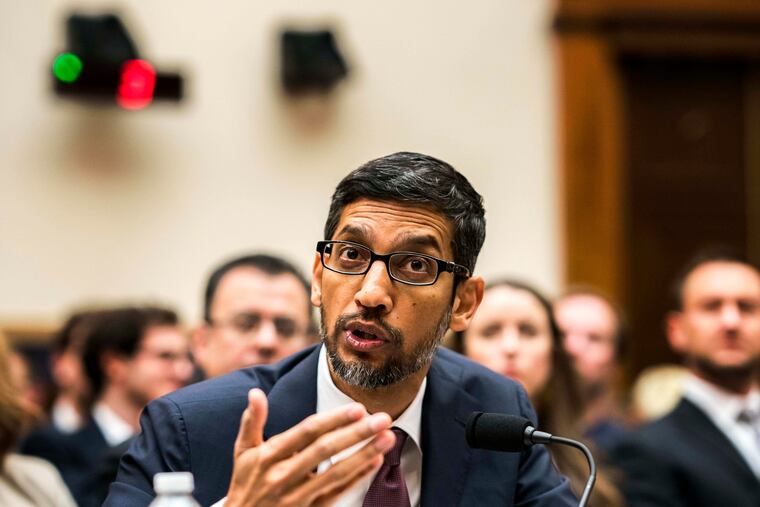Facebook, Twitter, and Google’s foot-dragging over Russia emboldens regulators
The industry is more exposed to a regulatory crackdown.

Facebook, Google, and Twitter were slow to respond to Russian abuse of their services, and they dragged their feet when U.S. lawmakers investigated, leaving the industry more exposed to a regulatory crackdown.
Two reports released Monday by the Senate Intelligence Committee show Russia's online meddling in U.S. politics was deeper than previously thought, and is still happening. The studies also called out the internet giants for responding slowly and sharing limited information with researchers throughout the investigation.
Slowing probes and betting on Washington gridlock to avoid new regulation is a common and successful tactic among corporations. Still, after a stream of bad news about data breaches and privacy lapses this year, the tech industry has used up much of its political goodwill.
“The legislature’s not going to be giving too much credence to what the industry says because of all these incidents and events that we’re learning about, pretty much every day,” said Dipayan Ghosh, a researcher at Harvard’s Kennedy School who used to work on Facebook’s public policy team. Shares of Alphabet, owner of Google, gained 1.73 percent Tuesday, while Facebook rose 2.48 percent and Twitter was up less than 1 percent.
After the Senate-commissioned reports came out Monday, some lawmakers ratcheted up calls for stricter regulation of the industry.
“It is time to get serious in addressing this challenge,” Sen. Mark Warner (D., Va.) said on Twitter. “That is going to require some much-needed and long-overdue guardrails when it comes to social media.”
The Democratic Party, which has few qualms about government oversight of private companies, is set to take control of the House of Representatives in January.
The Congressional Black Caucus, which represents African American legislators, tweeted out its own message for tech companies: “If they can’t stop the weaponization of their platforms, then Congress will.”
Rep. Adam Schiff (D., Calif.) said he and other lawmakers urged internet companies to collaborate on an analysis of Russian activity that included major social networks and other online services. The firms were reluctant, making “our task far more difficult than it should have been,” he said.
"Congress must hold these companies accountable in a manner commensurate with their public responsibility," Schiff added. He's set to become chairman of the House Intelligence Committee when the new Congress is sworn in next year.
A spokesperson for Alphabet declined to comment. Twitter said it has made significant progress limiting abuses of its service and is working with investigators. Facebook didn’t respond to a request for comment.
Facebook has said it’s open to regulation, as long as it is smart. In the meantime, the company has attempted to regulate itself, with mixed results. A new political-ad identity verification system blocked some ads that weren’t political. It has also been shown to be easily manipulated by reporters and others.
So far, the only recent new federal regulation on tech companies is a law that makes websites liable if they knowingly facilitate sex trafficking. A top internet lobbying firm supported the bill but warned it could become a slippery slope. Using that same template but adding other types of content, such as misinformation, may be more damaging to the industry.
The main legislative threat is a strong federal privacy bill, according to Ghosh, the former Facebook policy team member. California has a tough privacy law set to go into effect in 2020, so tech companies have an incentive to support a weaker federal bill that would supersede the state rules, he said.
“From a commercial lens, it’s the right thing for them to do to just slow-roll everything,” Ghosh said. “Their calculation is there’s going to be political gridlock basically forever.”